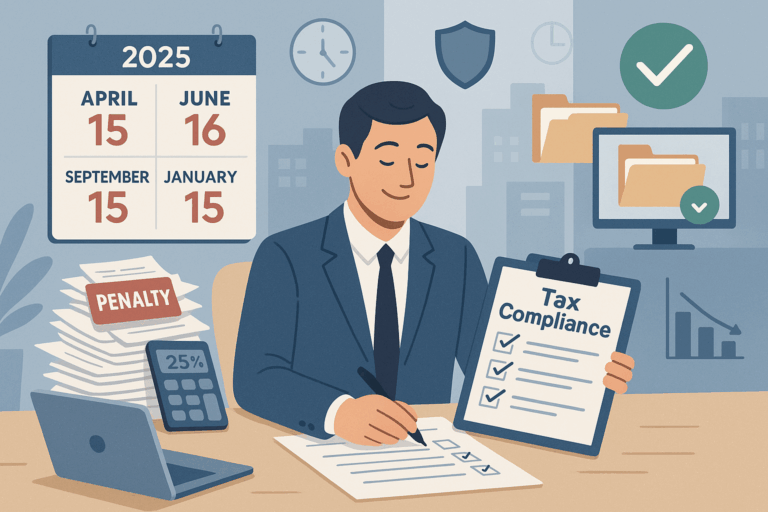Dreaming of that perfect getaway but worried about your budget?
Here’s a travel hack that’ll make your accountant smile. Believe it or not, your next business trip could be a tax write-off goldmine. But here’s the kicker – you might be leaving money on the table if you’re not maximizing your deductions. Because contrary to popular belief, mixing business with pleasure isn’t just allowed, it’s practically endorsed by the IRS.
An Overview of Business Travel Deductions
The IRS defines travel expenses as ordinary and necessary costs incurred while traveling away from home for business, profession, or job purposes. These expenses must not be lavish, extravagant, or for personal purposes. To determine if your travel expenses qualify for deductions, consider two key factors: Are these expenses ordinary for businesses in your industry? And are they necessary for your business operations?
Deductible Travel Expenses
Once you’ve established that your trip meets the IRS criteria, you can deduct a wide range of expenses, including:
1. Transportation costs: This covers air, train, or bus fares, as well as car expenses between your home and business destination.
2. Local transportation: Costs for getting to and from the airport and your hotel.
3. Accommodation: Hotel expenses for the duration of your business trip.
4. Meals: 50% of non-entertainment related meal expenses.
5. Communication costs: Internet fees, fax, or printer fees related to business.
6. Incidentals: Tips for services, baggage fees, and even dry cleaning or laundry expenses.
Non-Deductible Expenses
While many travel expenses are deductible, it’s crucial to understand what doesn’t qualify:
1. Family travel costs: Unless your family members are business partners, their expenses are not deductible.
2. Extravagant or unreasonable expenses: Stick to what’s ordinary and necessary for your business.
3. Personal expenses: Souvenirs, personal shopping, or non-business-related activities are not deductible.
4. Home town expenses: Costs incurred in your home city don’t count as travel expenses.
Maximizing Your Deductions: Mixing Business with Pleasure
The tax code allows for some flexibility in combining business and leisure travel. Here are some strategies to maximize your deductions:
1. Ensure the primary purpose of the trip is business-related.
2. Schedule the majority of your travel days for business activities.
3. Remember that travel days count as business days.
4. If your spouse is a business partner, their travel expenses may also be deductible.
5. Consider “sandwiching” vacation days between work days to potentially deduct all lodging expenses.
For example, you might fly to a destination on Thursday, work on Friday, enjoy personal time on Saturday, work again on Sunday, and fly back on Monday. In this scenario, all lodging expenses could potentially be deductible.
Claiming Travel Expenses on Your Tax Return
The method for claiming travel expenses depends on your business structure:
1. Sole proprietors and single-member LLCs: Deduct expenses on Line 24 of Schedule C on your individual tax return.
2. Other business entities: Claim deductions on your business tax return under the travel expenses line item.
Recordkeeping and Audit Concerns
While less than 1% of tax returns are audited annually, it’s crucial to maintain thorough records of all deducted expenses. Keep receipts, itineraries, and business notes to justify your expenses if questioned by the IRS. A simple system, such as making notes on receipts and scanning them into a dedicated folder on your phone, can suffice.
Remember, an IRS audit doesn’t necessarily indicate wrongdoing. It simply means the IRS requires additional information or supporting documentation for your claimed deductions.
Conclusion
Business travel deductions offer a fantastic opportunity to reduce your tax liability while potentially enjoying some leisure time. By understanding what qualifies as a deductible expense, strategically planning your trips, and maintaining proper documentation, you can make the most of these tax benefits. Always consult with a tax professional for personalized advice, especially when dealing with complex scenarios or substantial deductions.
Your Next Steps to Tax-Saving Success
As you embark on your next business adventure, remember that smart travel isn’t just about finding the best deals—it’s about making every trip work harder for your bottom line. By leveraging these tax-savvy strategies, you’re not just seeing the world; you’re investing in your business’s future. So pack your bags, grab your laptop, and get ready to turn your next business trip into a tax-saving triumph. The world is waiting, and so are the deductions!
Ready to Maximize Your Business Travel Deductions?
Let’s connect! Find me on LinkedIn for more tax-saving tips and strategies. And if you have any questions or want to explore how these deductions can work for your specific situation, don’t hesitate to reach out.
Take Action Today:
Your next business trip could be your most profitable yet—let’s make it happen together!





